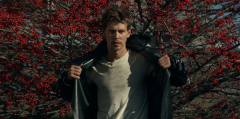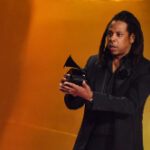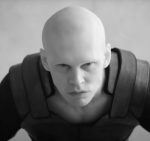Austin Butler is about to get his ass whupped.
Butler, towheaded and scrawny, not more than nine years old and painfully shy, cowers. The class bully is on the other side of his front door. Right there, on the lawn. Telling him to come outside so he can pound his face in. Butler looks to his mom. What do I do?
His mom is gentle. The least judgmental, most openhearted person he’ll ever know. Not a mean bone in her body. But she also understands how the world works—bullies included. So she looks her younger child dead in the eye and tells him what needs to happen next. “Lace up your shoes,” she says, “go out there, and beat the hell out of him.”
Butler does as he’s told. Of course, bullies are never as tough as they want to appear, are they? This one is no different; once Butler is outside, the bully tries passing his would-be victim’s beating off to the much bigger friend he brought along with him. But Butler, steeled with a new resolve, has an answer for that: “You came over. I’m taking you down.”
The bully strikes first—he tries to whack Butler with his skateboard—but Butler dodges. He tackles his opponent. Pins him to the ground. And then he just starts whaling. The bully relents.
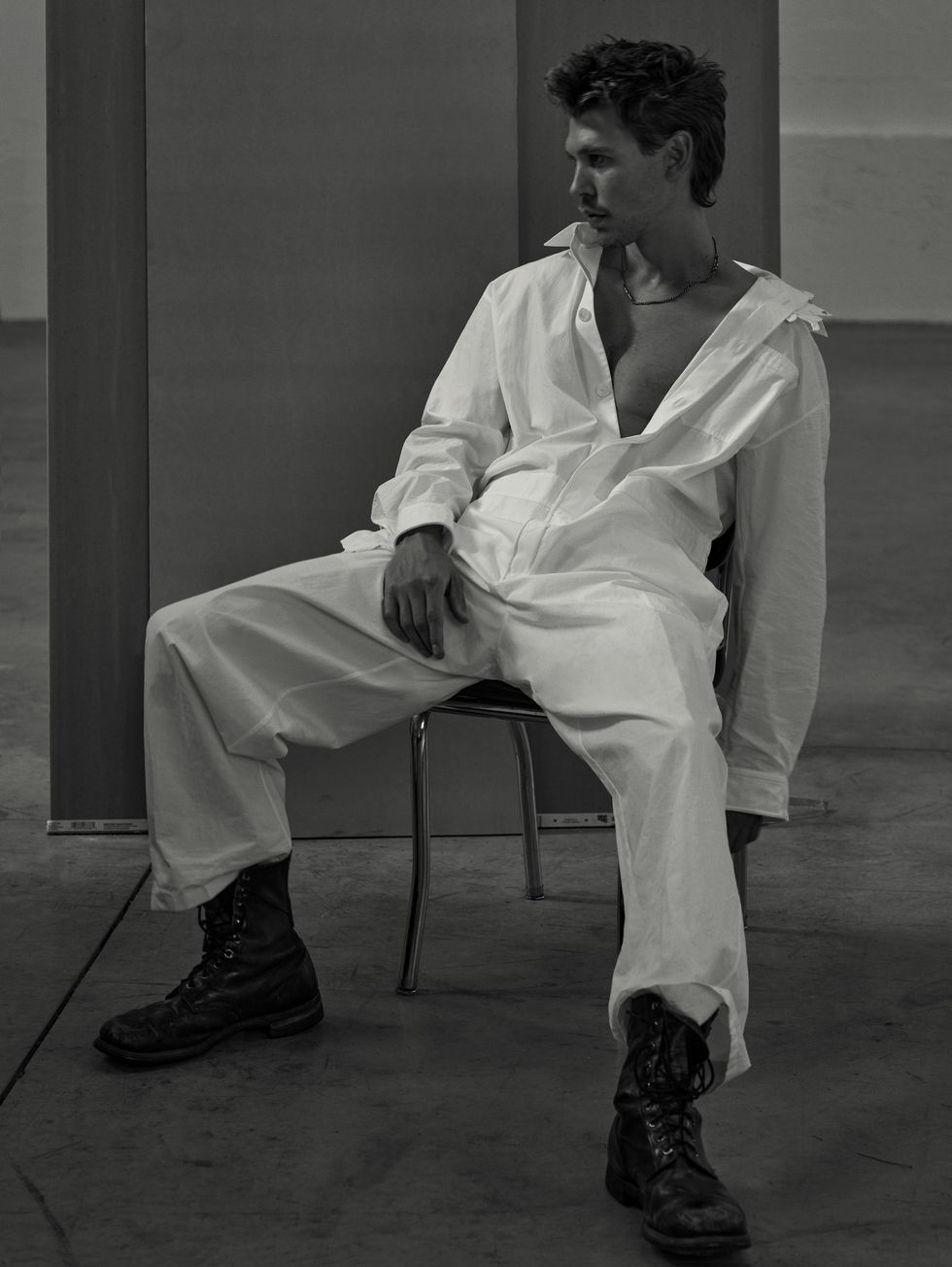
Jumpsuit by Valentino; vintage boots (worn throughout), available at Stock Vintage, NYC; necklace (worn throughout) by Werkstatt:München.
It’s the end of the fight, but it’s not the last time Butler will scrap. A timid kid with no connections, he’ll force his way into Disney Channel and Nickelodeon stardom. As a young adult, he’ll overcome profound grief to find new depths in his craft. He will work harder and longer than anyone and everyone he meets to convince audiences that his leap from child actor to Hollywood leading man—perhaps the most terrifying jump in show business—is not just possible but inevitable. He will take this world in inches. And then, as a man, through sheer force of desire and artistic abandon, he’ll try to become the first movie star since Leonardo DiCaprio became the last movie star.
Doubt him if you will. But don’t underestimate his chances.
Some twenty-three years after the fight, Butler recalls the memory with amused astonishment. He can’t believe his mom said it. Beat the hell out of him? Beat the hell out of him! He can’t believe he actually did it, either. Or that he and the bully later became friends. It’s mid- December, and we are huddled together in a back booth at the casual French eatery Margaux, inside the Marlton Hotel in Greenwich Village. It’s 3: 00 P.M. and we just did the New York City winter shuffle, during which, having weathered an icy commute, you spend the first few minutes in any restaurant dancing between making small talk and peeling off layers. For him, off goes a black trucker hat, a black coat, and a black sweatshirt, all piled onto the tableside hooks. Only a long-sleeved white Henley and an oversize black T-shirt layered on top remain. His blond hair is mussed. There is a smattering of sandy-hued facial hair on his chin and upper lip.
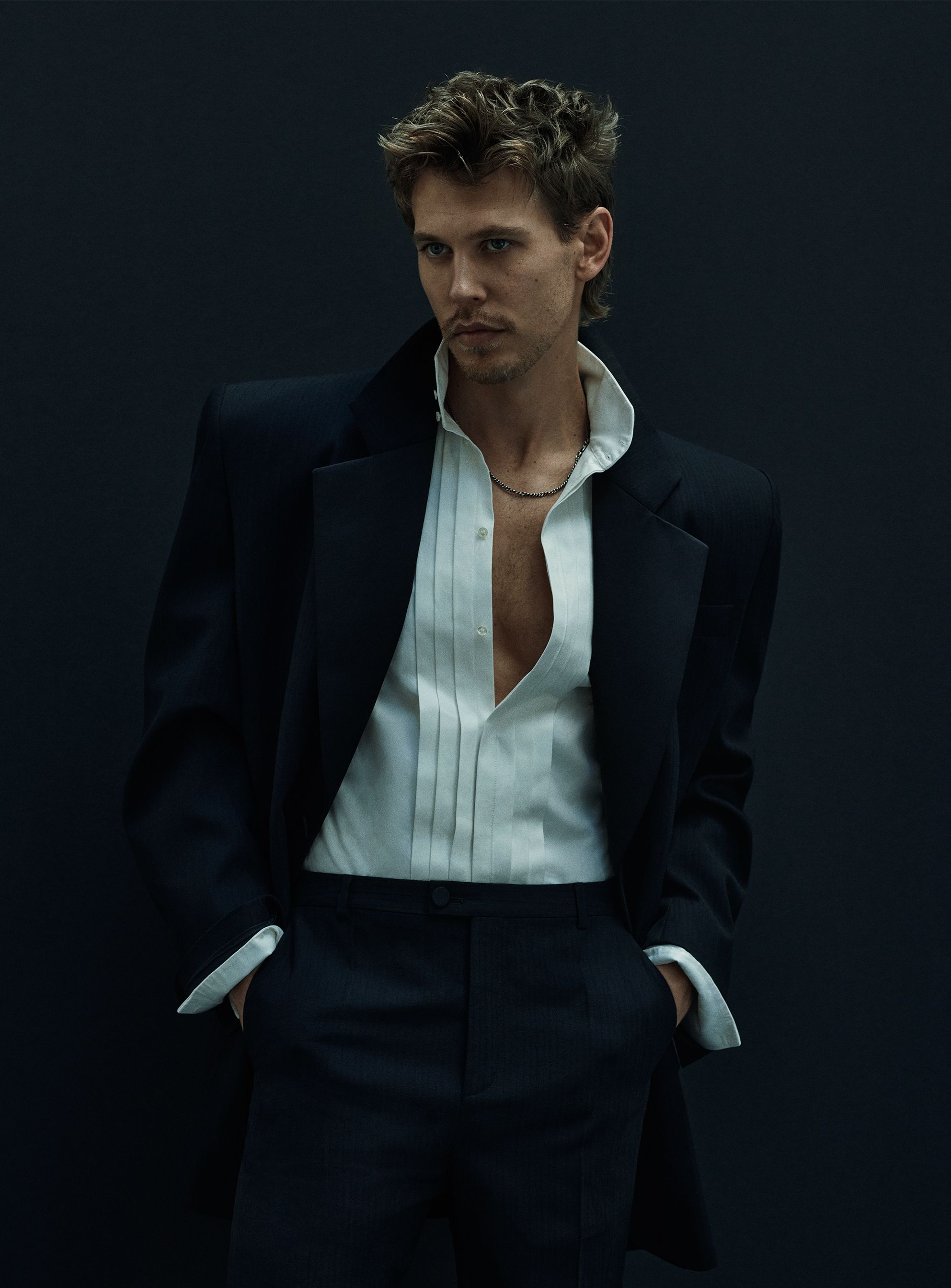
Jacket, shirt, and trousers, Saint Laurent by Anthony Vaccarello.
The past eighteen months or so have been more than a little surreal for Butler. He began 2023 in a position that all actors dream of but few know firsthand, nominated for Best Actor by every awards body that matters. It was his portrayal of Elvis Presley in director Baz Luhrmann’s Elvis that landed him there, and the experience—junket into roundtable into podcast, photo shoot into red carpet into reception—was both euphoric and exhausting.
When the film, a fever-dream retelling of Presley’s life, debuted to rave reviews and a strong box office in 2022, Butler became an overnight sensation. He was on the cover of national magazines and a fixture on the late-night TV circuit. Tabloids and online forums feverishly blogged about his dating life. Social media exploded with fans frothing at the mouth for the heartthrob. But like most overnight sensations, Butler had been working for much of his life for a role like Elvis. A role that he could give himself over to completely. A role that would catapult him to the top of every casting director’s list.
Elvis would deliver all those things, plus earn him Golden Globe and BAFTA statuettes as well as an Oscar nomination, but Butler is not one to be idle. While Luhrmann’s film was in postproduction, the actor dove right into shooting a few major projects that are now finally getting released. First up: Masters of the Air, a World War II miniseries from Tom Hanks and Steven Spielberg that debuted on Apple TV+ at the end of January. (Hanks costarred with Butler in Elvis as the singer’s infamous manager, Colonel Tom Parker, and recruited him during filming.) And in the biggest theatrical event of the spring—quite possibly the year—he’ll star opposite Timothée Chalamet in the second entry of director Denis Villeneuve’s cyberpunk Dune franchise.
Promotion for the projects is ramping up, but Butler is due for a break. After our interview, it’s back to the West Coast and then off on vacation. He’d spent the previous weekend in São Paulo with the cast of Dune: Part Two at Brazil’s Comic Con. Butler was blown away by the thousands of screaming fans. He was further shocked when a projectile whipped past him through the air—hurled from the crowd, right at his costar Florence Pugh. As the actors posed for a final wave and bow, “they flung it like a Frisbee,” he says, the incident still fresh in his mind. “I could hear it.” Ffffffffft! It hit her square in the face.
“It was a friendship bracelet,” says Butler. The irony isn’t lost on him. “Wasn’t very friendly,” he adds.
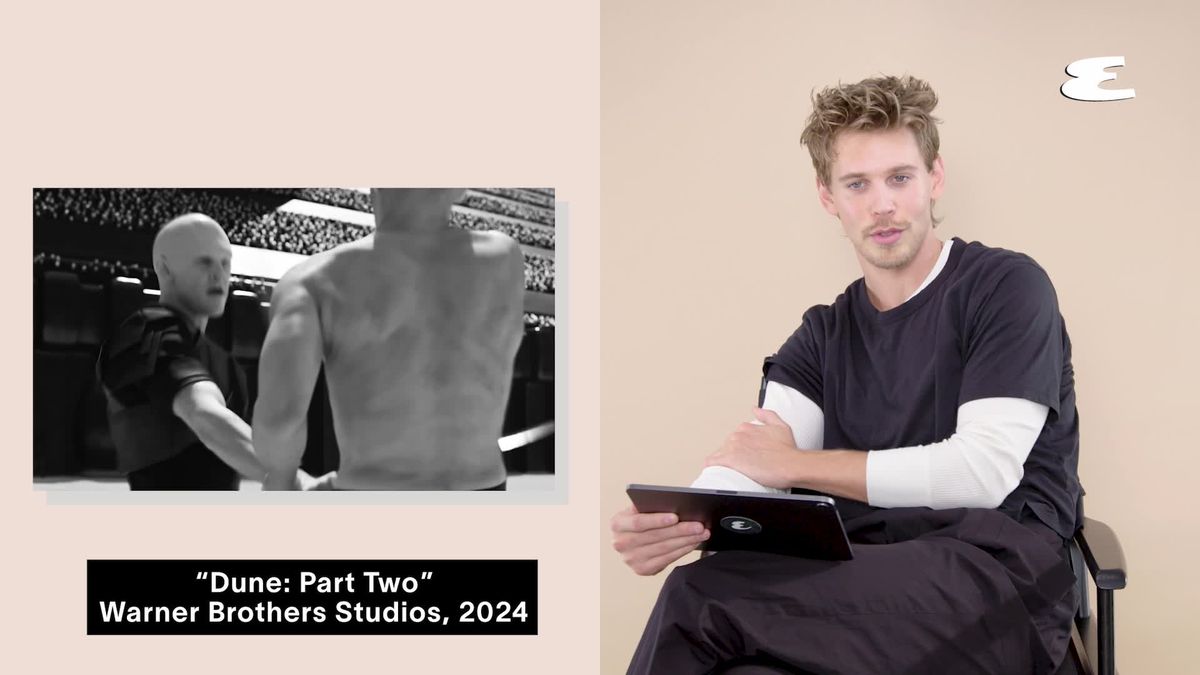
The actor, thirty-two, spends a fair amount of time in New York. Has for the past decade, really. He moved to the West Village in 2012 when, at the age of twenty, he booked a role as the high school hottie on the CW’s Sex and the City prequel, The Carrie Diaries. It was good work, even if it wasn’t the sort of role he’d always envisioned for himself. Butler feels no bitterness toward the teeny bopper titles that helped him get his start. How could he? Everything is an opportunity to grow. “I know that I would probably cringe if I watched some things, because you’re seeing yourself through the learning process,” he says. “But that was my schooling. I wouldn’t be here without all of that.”
Butler had seen plays before, of course. But his relocation to the East Coast was his real introduction to the world of theater. He became obsessed. On off days, you’d find him in the crowd—any crowd, at whatever was playing—on Broadway. Even after filming had wrapped on The Carrie Diaries, he wanted more. He’d make periodic trips from L. A. to immerse himself. “I would come back for two weeks, and I’d see fourteen plays,” he recalls.
He moved to New York again in 2018, this time to Brooklyn, while performing in the play that would change the trajectory of his career, The Iceman Cometh, alongside Denzel Washington. It would be incorrect to call Butler hopeless in any respect, but he is, without a doubt, a romantic. The proof? His review of the notoriously unreliable, often overcrowded, never-on-time L train that runs between Manhattan and Brooklyn, which he rode back to his apartment in Williamsburg after every performance: “There’s something so beautiful about, at the end of the night, whether you had a great show or an awful show, you got on the subway. I’d go down and take the L out to Williamsburg and, no matter how you felt, humanity washes over you. I loved it.”
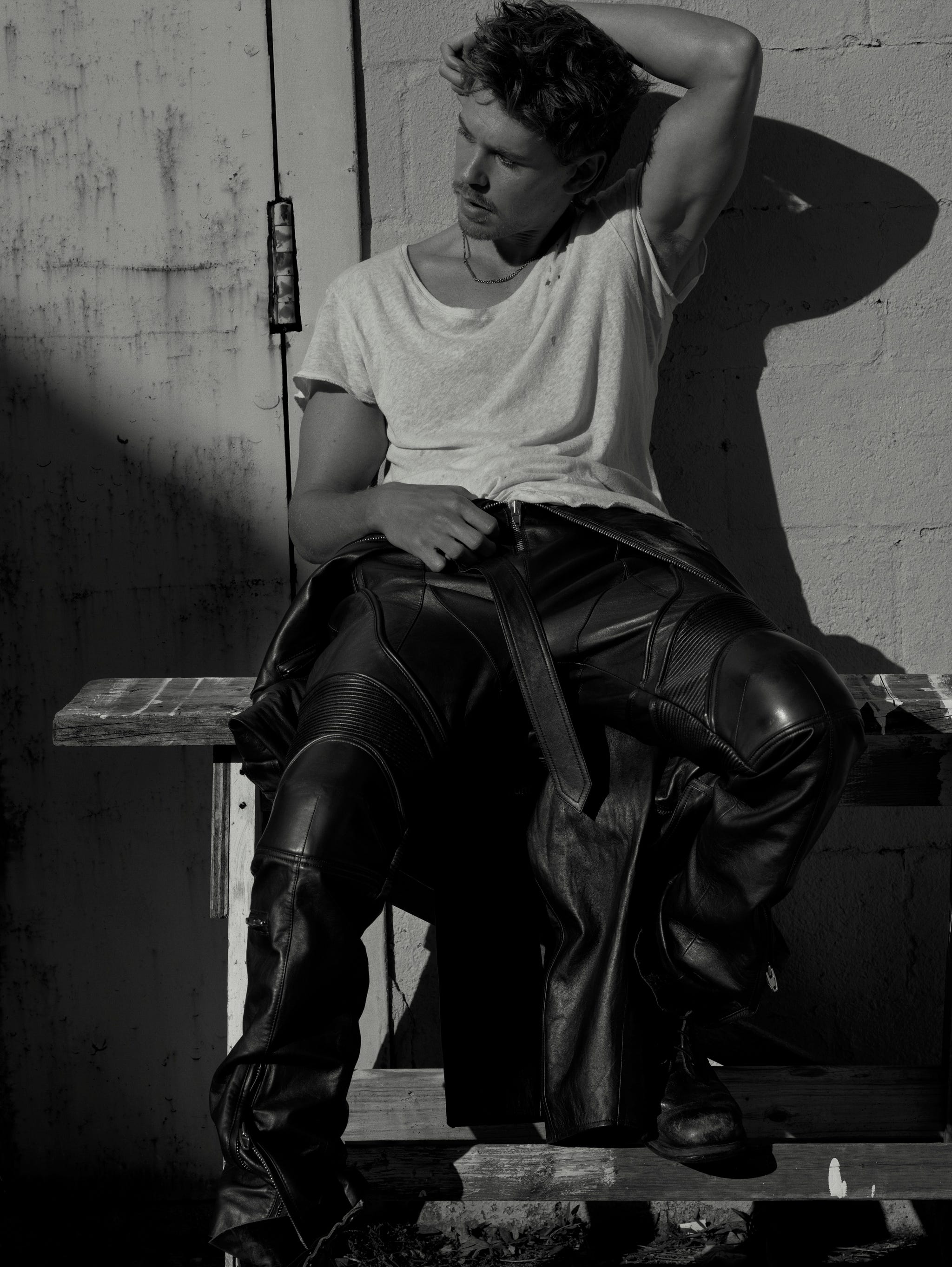
T-shirt by Greg Lauren; jumpsuit by Juun.J
Butler grew up in a small house on a quiet street in Anaheim, California, with his parents, David and Lori, and sister Ashley, five years his senior. David was a commercial real estate appraiser, and Lori stayed home with the kids. Not just her own two, though. At one point, she started a home daycare center.
Tall, sweet, and incredibly quiet, Butler struggled to fit in with the other children. “I just didn’t feel close to them,” he says of his early classmates. Things didn’t improve after his parents split when he was seven.
Butler didn’t play sports. He rarely landed a playdate. But when his mom remarried, he gained a stepbrother along with a stepdad. And after his stepsibling got scouted at the Orange County Fair by a background-casting representative, Butler tagged along to the audition. He was already a movie lover—his dad gets credit for his taste in films. “I have a vivid memory of being five, watching The Good, the Bad and the Ugly,” Butler says. Rear Window, too. “And then East of Eden and Chinatown when I was seven. Those films really shaped me.” He’d never thought about how they got made, but soon he realized that he had found his thing: acting.
As Butler approached the end of sixth grade, he was resistant to the idea of moving to a new school for junior high—new classmates, new anxieties. His parents decided to pull him out of the system. Lori was already homeschooling Ashley anyway. But when Butler joined the kitchen-table classroom, his sister was in her senior year of high school. So it wasn’t long before he was attending a school of one.
Not the most social arrangement, I suggest.
“No,” Butler says, laughing. “Very not.”
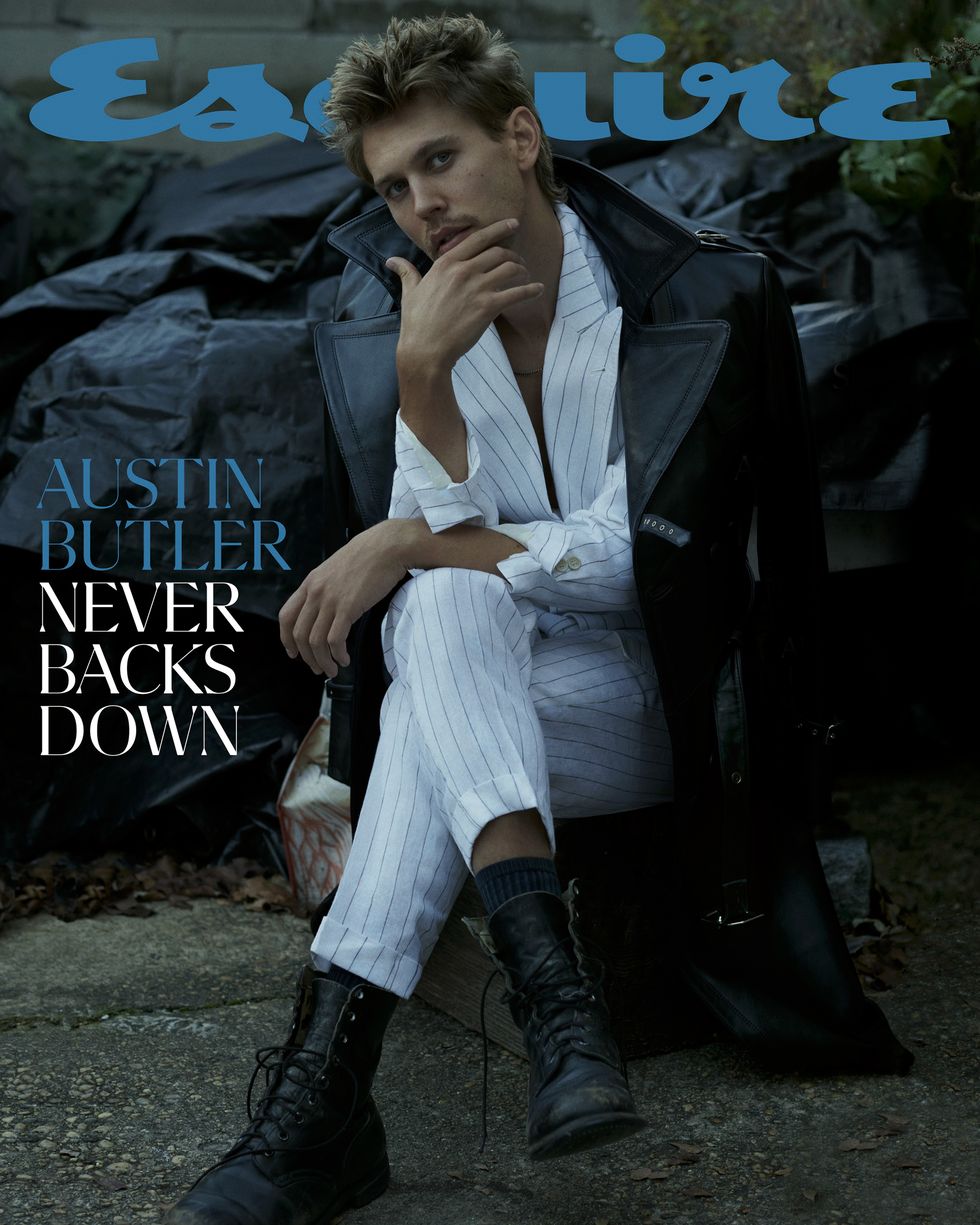 Subscribe
Subscribe
Coat by The Cast NYC; suit by Brunello Cucinelli.
This article appeared in the March 2024 issue of Esquire
As he pursued acting, though, he found the first community of young people that he’d ever related to. “They liked to play the guitar, and suddenly I had something that I liked to do, so we’d play the guitar together,” he recalls. “Or they would have vulnerable conversations. That open, more mature, soulful connection was something that I had never had with other kids.” He got an acting coach. Went to casting calls—every single one he could. Mom would drive him to L. A. and back home again. Shortly thereafter, roles started coming. Zoey 101. Hannah Montana. iCarly. Wizards of Waverly Place.
Lori’s second marriage lasted five years and then ended suddenly. When she, Butler, and Ashley needed a place to stay on short notice, they moved in with David. It went well enough, so they decided to keep the arrangement. Dad even turned the garage into an apartment for himself. They would stay like that until Butler turned eighteen and moved out on his own. He says he never felt any confusion about his parents’ relationship during that time. “They weren’t meant to be together,” he says without a trace of doubt. “They were so different. Both equally loving, beautiful, and quirky in their own ways.”
His social circle revolved around the jobs that he booked. And although you get the sense that Butler’s group has remained small, over the years he made some valuable, lasting connections. Like Ashley Tisdale, a fellow Disney Channel graduate whom Butler met when the two were cast in 2009’s Aliens in the Attic. “He’s probably going to kill me for saying this, but we used to joke that we were twins born several years apart,” says Tisdale with a laugh. “We just had this bond.” They filmed together for six months in New Zealand and have been friends ever since. While Butler was on location in Australia shooting Elvis for months on end, he would FaceTime Tisdale, who was pregnant and in Los Angeles. It meant a lot. “I was like, you’re doing this huge movie, and the fact that you care to FaceTime me?” she asks by way of explanation. In 2021, Tisdale gave birth, and Butler was the first person she and her husband FaceTimed from the hospital.
Without traditional schooling, the extra time he spent with his mom was special. They’d go to nearby Knott’s Berry Farm or Disneyland to ride the roller coasters. Study in between his acting classes. He’d recite the sorts of scripts he fantasized about getting one day—like Pulp Fiction—to her on the car rides back and forth from Los Angeles. And as his acting roles got bigger, so did their adventures. For the Aliens in the Attic shoot, Lori relocated to New Zealand with Butler, then fifteen. Already mother and son, they really became friends during that time.
“Best friends,” Butler clarifies.
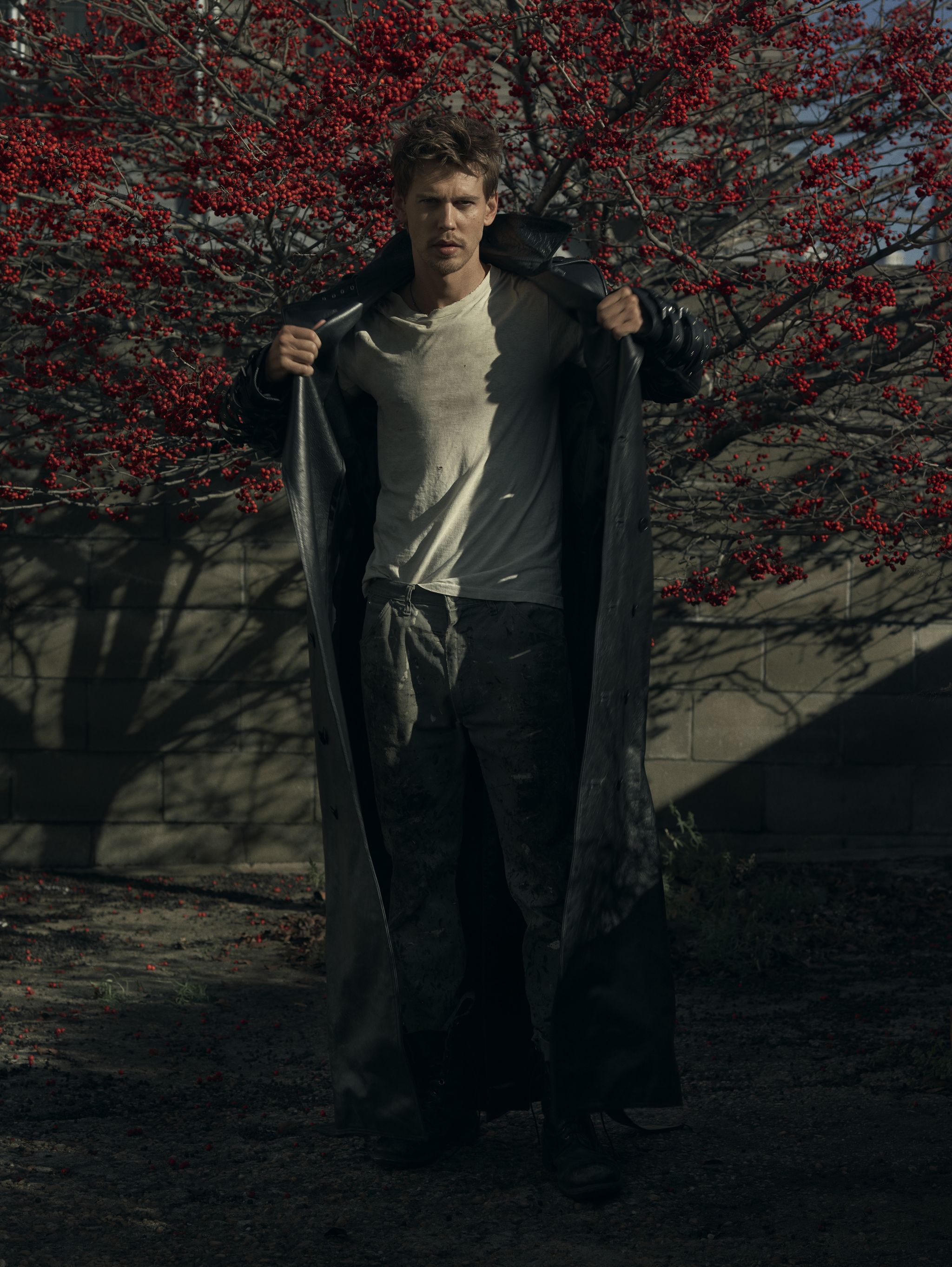
Coat by Palomo Spain; vintage T-shirt and trousers, available at Sumshitifound Vintage, NYC.
Butler hasn’t heard from his former stepdad or stepbrother. Not even since his career took off. He doesn’t even know where they are. Some things, some people, they don’t deserve your daylight, and whatever happened between them, Butler won’t say. What was the feeling in their house during that era? I ask. “I remember having really deep thoughts of my own mortality at a very young age,” he says. “But then moments of feeling very close with my mom. She was a safe space.”
Life is almost exclusively made up of tiny moments that change your life in tiny ways. Almost unnoticeable ways. And then, every so often, something happens that’s so big and so bad that it blights the sun. It’s not just your life that changes but the entire world. You. When Butler was twenty-two, his mom was diagnosed with cancer. Lori moved in with her son and, as things got worse, which they did, he served as her primary caregiver. A nurse would come and go; Butler administered her IVs and managed her feeding tubes.
“I felt like I had to be a mountain,” he says of the weight of that period. But his mother, at the peak of her pain, stunned him. She never lost her faith, he says. She also stayed kind. Impossibly kind. “She would say, ‘Austin, on your way to the hospital today, go and pick up flowers for all of the nurses.’ ” After a pause, he adds, “What a beautiful lesson for me to have: How do you still think of others even when you’re hurting?” Lori died a month after his twenty-third birthday. Butler crumbled.

Days after his mother’s funeral, he was due on set for The Shannara Chronicles—in New Zealand. He went. He was a professional. Showed up on time and did his best. Rode the horses, said his lines. But every night, he’d return to his hotel room and sob into his pillow. And once filming wrapped on the show’s second and final season, Butler decided to do something he hadn’t done before: take a break. Say no. At one point, he thought about quitting acting altogether.
“I had a lot of turmoil in my mind,” he says now. He was struggling to get his head straight and desperately searching for new ways to feel connected to his mom. He tried closing himself off to the searing pain but ultimately recognized that you can’t turn off the hurt alone. Shut those feelings down and the highs—any joy at all, really—disappear as well. “I needed time to metabolize some of those emotions.” He spent eight months doing just that.
Lori left her son with her faith. Butler had a very religious upbringing, he says, and experiencing her illness deepened his spirituality. She lives on with him in more obvious ways, too. Look at even one picture of Butler and his mom and you’ll see the resemblance: Both blond with a long, angular face; eyebrows just slightly arched; and a strong, straight nose, they are spitting images of each other.
In time, he began to believe in his path again. “He realized his mom wouldn’t want him to stop,” says Tisdale. “His mom would want him to keep going. I think that was a driving force. And I believe she’s seeing all of these things and is there with him now.”
After recommitting himself to acting, Butler found he had a clearer sense of direction. He explains: “I just said, ‘I’ve got this feeling of what I need to do—of the only type of thing I want to do. I want to get to explore certain parts of myself that I haven’t had the opportunity to.’ ” Then The Iceman Cometh was casting for a Broadway run, and Butler was hungry for it. “I knew it was a yes if they would take me. This was exactly what I wanted to do.”
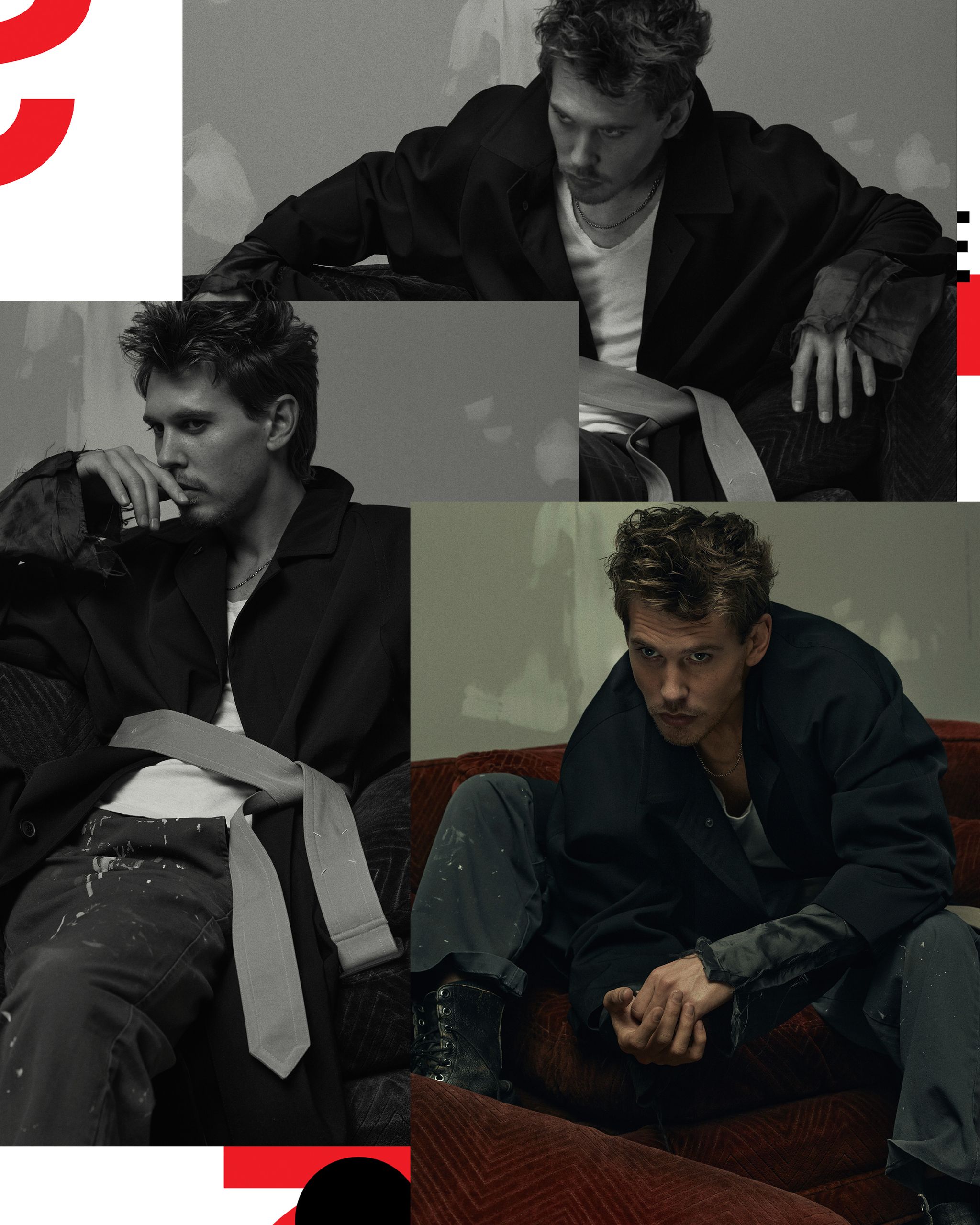
Coat by Maison Margiela; vintage shirt and trousers available at Sumshitifound Vintage, NYC.
Butler got the role. He showed up to the first table read having memorized not just his own lines but the entire cast’s. His costar, Denzel Washington, was impressed. The critics were, too. The opening line of The New Yorker’s review said it best: “Although there are many performers in George C. Wolfe’s staging of Eugene O’Neill’s phenomenal 1946 four-act and nearly four-hour drama, The Iceman Cometh, there is only one actor, and his name is Austin Butler.”
Shortly after, he nabbed a part from the director he’d wanted to work with since he was young, Quentin Tarantino. Butler played Tex, the crazy Manson guy Brad Pitt kills, in Once Upon a Time . . . in Hollywood. Then Luhrmann was casting for the title role in Elvis, and Butler knew he had to have it. But the director had other actors in mind—more famous guys, like Miles Teller, Harry Styles, and Ansel Elgort. Butler would not be deterred. He met with the director off and on for five months. He dyed his hair black and hired a movement coach to learn how to wiggle just like the King. A dialect coach, too, to help him perfect that 1960s Memphis drawl. And one night after he woke up from a dream about his mother, vibrating with emotion, he sat down at the piano and filmed himself performing “Unchained Melody,” then sent it off to casting. The role was his.
News of Butler’s casting went down like a steaming hot mug of gasoline. Social media wanted, it seemed, damn near anybody else. Luhrmann has even said his feed was filled with three letters: WTF. But Butler knew this was his chance. The chance. By the time filming was set to begin, in the early spring of 2020, he had transformed completely. As he says, “It felt like my entire meaning of my life at that moment was that.”
I’m sure you’re wondering about the voice. Here’s what you need to know: It’s hot. Low and unhurried. Rough at the edges. Gravelly. The adopted twang has finally been shed. Sentences begin or end with ummms and hmmms. Everything in between is intentional. Considered. That space between words and phrases, almost unnatural in its breadth, insists that its audience lean forward, willing the next word to land.
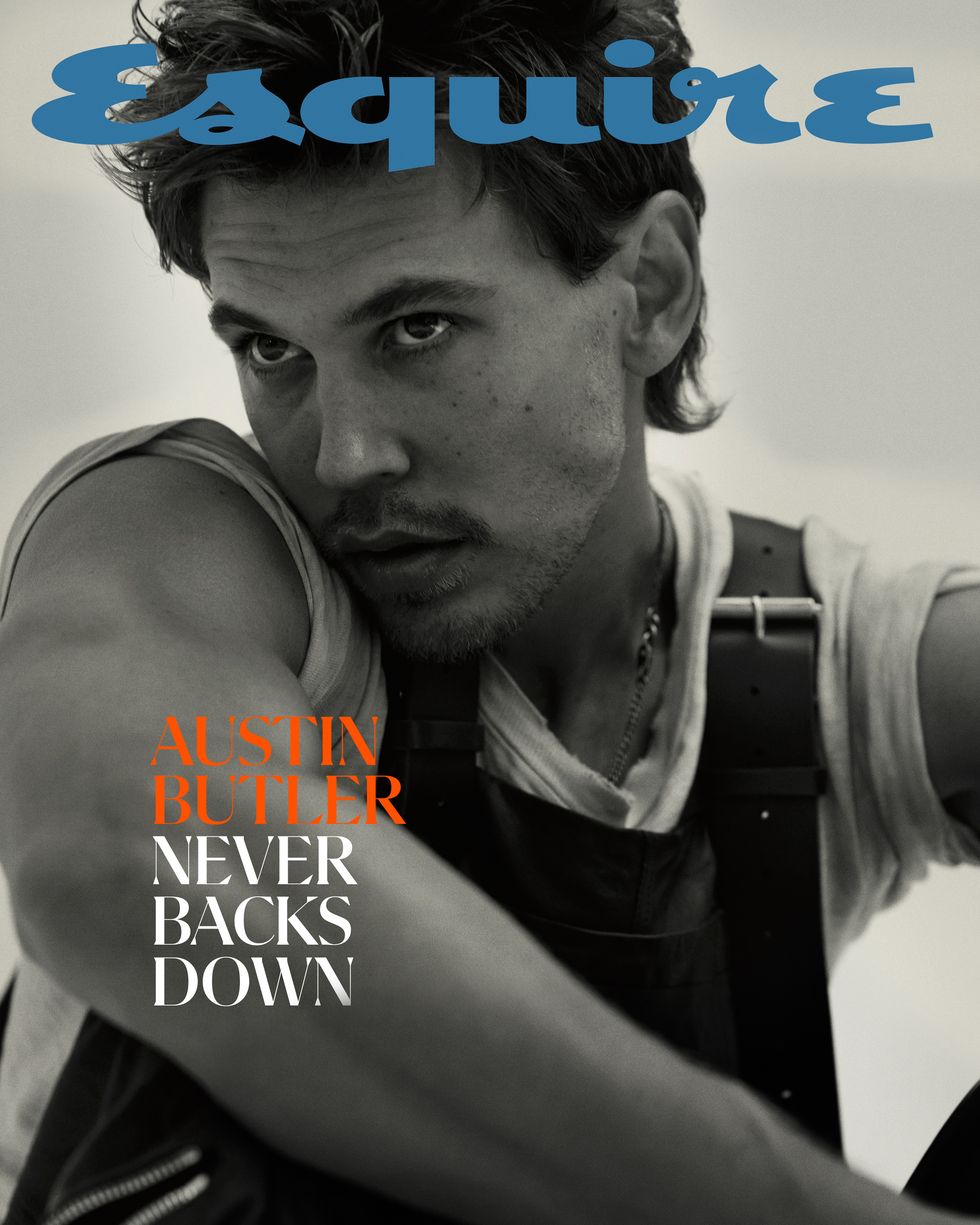 Subscribe
Subscribe
Overalls by Natasha Zinko; vintage T-shirt available at Sumshitifound Vintage, NYC.
Butler has been asked about his voice a lot since Elvis. In interviews. On red carpets. Not all of it has been unfair. He did, after all, pop up during press for the movie, eighteen months after filming had wrapped, sounding, well, a lot like Elvis. The twang had loosened, and the pitch had risen ever so slightly, but it was hardly the voice of a kid from Anaheim.
Butler has answered graciously each time. He has spoken about how certain face movements and poses are subconsciously adopted and how a voice is just the architecture of y

